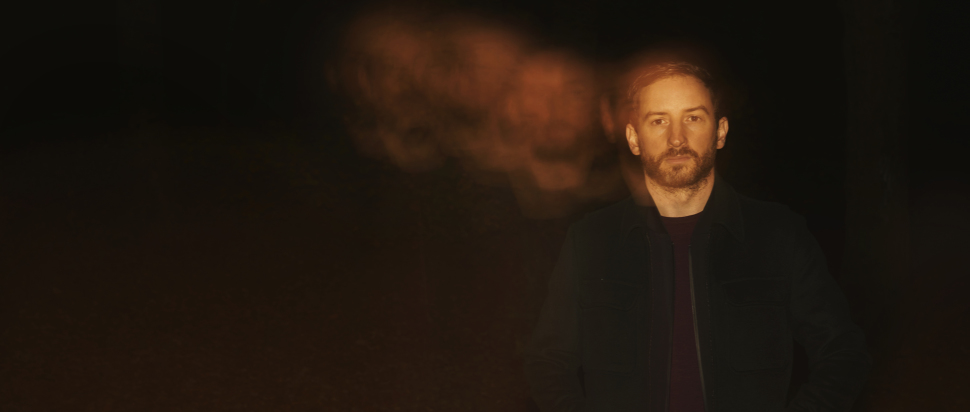Max Cooper on Unspoken Words, and the limits of language
On his latest album, Unspoken Words, Max Cooper pushes himself further than he ever has before. We meet the Belfast-born audiovisual artist to discuss the multifaceted project and the limitations of language
When Max Cooper came up with the concept for his new album, Unspoken Words, he didn’t fully think through the promotional aspect. “Now comes the time when I have to try and put into words this thing where the whole idea is that I'm trying to express things I can't put into words, so there’s a bit of a paradox there,” he laughs.
Throughout his career, Cooper has established himself as one of the most interesting audiovisual artists working in electronic music, exploring the intersection between music, film, art and science. His previous five studio albums and varied collaborative works have all proven him to be a meticulous and deeply thoughtful artist, crafting carefully-curated worlds for each project and very much throwing the listener, or viewer, into them headfirst.
But his latest studio album, Unspoken Words, feels like his most ambitious work to date, with each of its 13 tracks written and produced as audiovisual works and culminating in an accompanying full-length Blu-ray film to be released alongside the album. Cooper worked with various visual artists – some of whom are frequent collaborators of his – for each of the 13 short films to convey a range of feelings and emotions that can often be difficult to articulate through words.
But, with the benefit of additional time for reflection and expression brought about by lockdown, Cooper was able to challenge himself a bit more and switched up his usual creative process. “It was the most intuitive approach to an album by far,” he says. “I would write the music and I would have a very clear emotional idea of what it was, and then I would link that emotional idea to a visual structure,” he says.
“For example, Spectrum, on the album… was beautiful and happy, at the same time as being sad and reflective, so it was a combination of things that words don't combine naturally,” he continues. “The real nature of our internal conditions is a lot more nuanced and complex… where words tend to categorise things into this positive or negative valence, and I think that doesn't fully capture the internal state.”
With the limitations of language very much at the centre of Unspoken Words, Cooper took inspiration from the works of probably the most comprehensive explorer of language in history, the late philosopher Ludwig Wittgenstein. Notoriously unpredictable and inconsistent, Wittgenstein was well-known for frequently shifting his viewpoints and questioning his own thinking. But this seemingly chaotic approach did fit with his overall theory that language, and the ways in which we use it, is inherently flawed.
“I was thinking about where to turn to; people that have battled with this idea previously, and I remembered Wittgenstein, who was famous for saying that the problems of philosophy are problems of language,” he says. “Essentially, a lot of philosophers were arguing about all these things…[but] he broke it down and said a lot of this is just because the language we use is imperfect and people use it differently, and there are a lot of problems with language. So I turned to his writings, which are famously dense and incomprehensible, and used them as source material for several of the video projects.”
Cooper’s explorations of language extended into technological realms too. For the visual presentation of Symphony in Acid, Cooper enlisted code artist Ksawery Komputery to build a system which reacted to two of Wittgenstein’s writings – Tractatus and Philisophical Investigations – and for Exotic Contents, he worked with machine learning researcher Xander Steenbrugge to convert Wittgenstein's texts into moving images.
“We were able to take the Wittgenstein text where he's battling with the problems with words, and the problems of trying to find our place in the world using words to describe our internal states,” he says. “All these issues he's battling with in this really intense written manner, we were able to convert that into a visual… and that was another way of exploring the idea of the album in a slightly less personal way.”
Not content with the huge scale of the project visually, however, Cooper also took its production to another level and recorded the album using Dolby Atmos at London’s String and Tins studio. “You take every piece of sound – every element of every piece of music – and you decide how big it is, where it sits in a three-dimensional space around the listener, how it moves in time,” he says. “You do that with every piece of audio… and turn each piece of music into a dynamic, three-dimensional living organism.”
Unspoken Words feels like just that; a living thing that exists not only as an album and visual project but as a complete experience. It's there to be explored in various ways and across multiple formats, providing a unique experience for each person.
Unspoken Words is released on 25 Mar via Mesh
Max Cooper plays SWG3, Glasgow, 14 Apr
